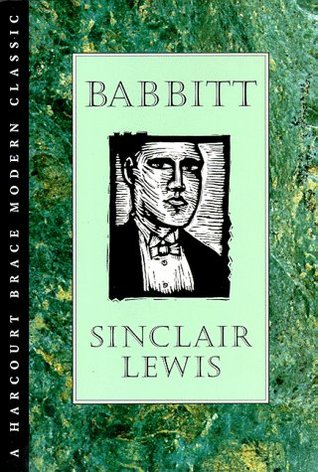Memorable Characters in Literature: George Babbitt

Sinclair Lewis had a talent for holding up a mirror to society. His title character George Babbitt is easily recognizable: materialistic, pompous, blustery, social-climbing, self-serving and self-aggrandizing. He rationalizes his way through life on the pretext that what’s good for Babbitt is good for the U.S.A. But reader, beware! As you gaze into Sinclair Lewis’s mirror, you may inadvertently glimpse yourself.
Babbitt lives in the imaginary city of Zenith, sometime during the World War I era. In partnership with his father-in-law, he has built a successful real estate business by investing, glad-handing, back-slapping and joining the right male social clubs. “He was, to the eye, the perfect office-going executive,” Lewis writes, “a well-fed man in a correct brown soft hat and frameless spectacles, smoking a large cigar, driving a good motor along a semisuburban parkway.”
Babbitt’s wife is submissive, his children are only mildly troublesome, his friends are fellow businessmen who think alike, and he belongs to an acceptably conservative church. He prides himself on being college educated, though confining his intellectual pursuits to business news and comic strips. He has compassion for common laborers, as long as they don’t go on strike.
“He was conventionally honest, he kept his records of buyers and sellers complete, he had experience with leases and titles and an excellent memory for prices. His shoulders were broad enough, his voice deep enough, his relish of hearty humor strong enough, to establish him as one of the ruling caste of Good Fellows … He serenely believed that the one purpose of the real-estate business was to make money for George F. Babbitt.”
Yet, the very routine of his life has begun to breed a restlessness in Babbitt. He has semi-erotic dreams, feels trapped by his obligations, and yearns for adventure. Eventually, his stealthy ventures outside the zone of conventional morality lead him into trouble.
Amusing as Babbitt is, I found myself squirming at my own weaknesses and hypocrisies that manifest themselves in Babbitt and other characters. To me, that’s one of the virtues of great fiction. In novels like Babbitt and Main Street, Sinclair Lewis depicts people with all their faults and virtues, invites us to question our values and ask ourselves how we can do better.
